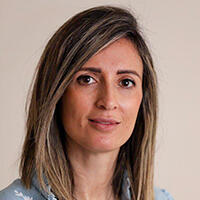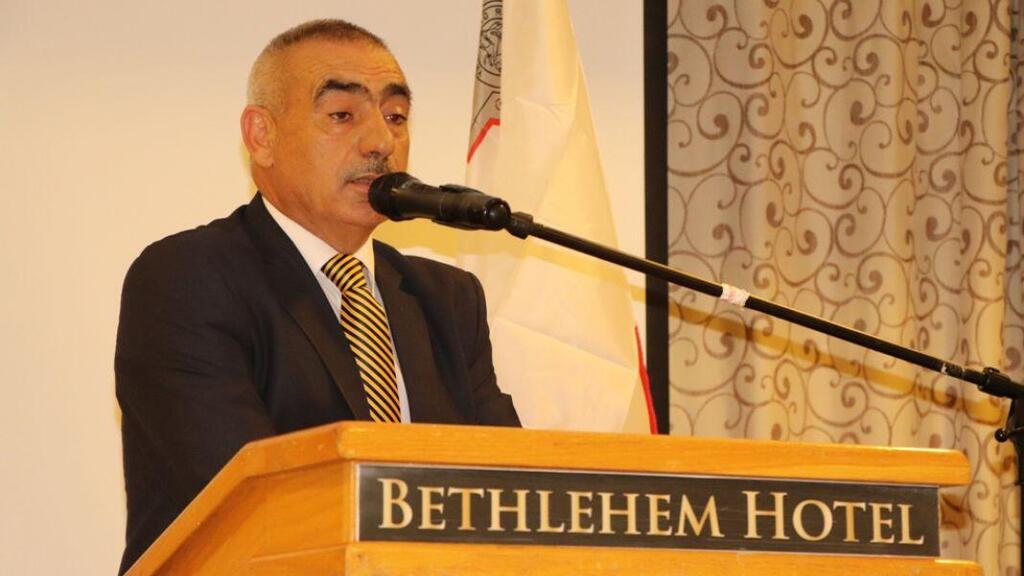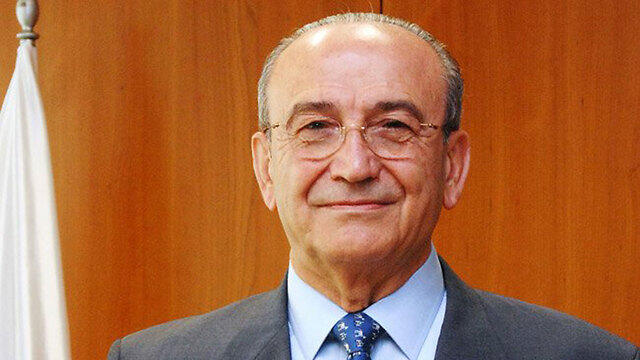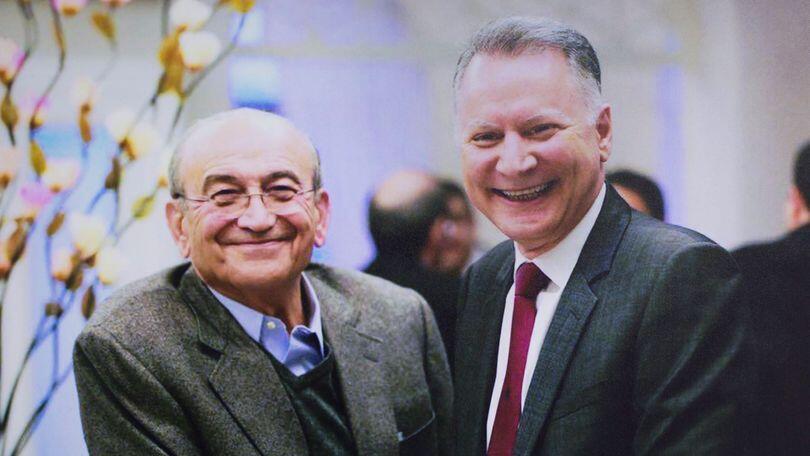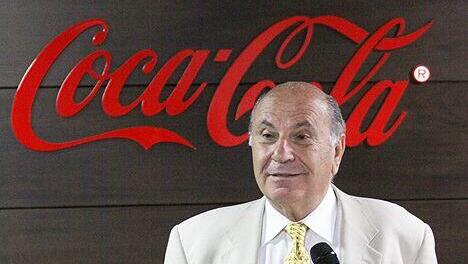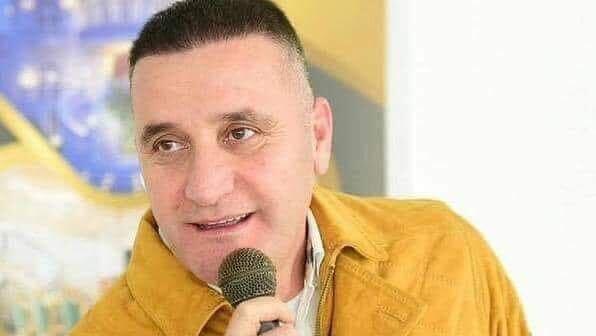Getting your Trinity Audio player ready...
As the war in Gaza continues, the Palestinian economy has deteriorated to an all-time low and a World Bank report last May stated that since the October 7 massacre, almost half a million Palestinians have lost their jobs: 20 thousand in Gaza, 144 thousand in the West Bank, and 148 Palestinian workers employed in Israel before the war. And as if that isn’t enough, the report also gave a string of pessimistic predictions, including an expected further 6.5%-9.6% contraction of the Palestinian Authority’s economy, and a severe setback if the war continues through 2024.
The crisis has primarily affected poorer and middle-class Palestinians, but it’s also felt – albeit less acutely – among the West Bank PA elite. On the face of it, the luxurious lifestyles are still going strong for wealthy businessmen and their families, as requests for donations for Gaza’s needy (and its accompanying PR) continue.
Born into a well-to-do Bethlehem business family, Elias al-Arja has investments in Latin America, and owns four hotels in Bethlehem catering mainly to Christian pilgrims. He also serves as chairman of the Arab Hotel Association. “Palestinian losses in the hotel sector in Bethlehem have reached $80 million” he tells Ynet. “Losses in the tourism sector as a whole such as restaurants, transportation, guides etc., have reached half a billion NIS.”
How important is this for the Palestinian economy?
Tourism accounts for 9% of Palestinian gross national income (GNI). Half of this is in the Bethlehem area. Do the math.”
What do you do? Give up? Divert investments to other places?
“Despite the harsh economic situation, I think we shouldn’t give up so easily. Investing overseas isn’t so easy either. Waiting for the war to be over is easier than leaving. Countries donating to Palestinians want to help our private sector. They have plans for economic growth and setting up projects to make tourism flourish, but right now – it’s out of our hands. We’re just waiting for it all to be over.“
Al-Arja is just one of many Palestinian businessmen who’ve made their fortunes overseas, many making use of their foreign passports. This list includes people high up in the world’s 0.1%. A report published in the economic magazine, Arabian Business, explains that there are five Palestinian families with assets of over $1 billion, alongside business tycoons coming close to this figure. Here some of these businessmen’s stories:
Munib al-Masri – the Richest Palestinian
Israeli and world media have described 90-year-old Munib al-Masri as “King of the West Bank” and the “Palestinian Rothschild”. Arabian Business ranks him as the world’s 33rd richest Arab. There is no official figure as to his net worth (he, himself, once said he doesn’t know what he’s worth), but global economic media agree it’s a ten-digit figure.
Born in Nablus, he was closely associated with first Palestinian Authority chairman, Yassir Arafat and is popular in Palestinian society for being a self-made man. After studying geology in the US, he founded a small company engaged in oil exploration and drilling that has expanded into gas, water and electricity infrastructure. He also owns businesses and initiatives in the hotel (Fatal), industrial and media sectors.
Al-Masri owns a vast palace, known as "House of Palestine", on the foothills of Mt. Grizim overlooking Nablus. The three-storey complex is surrounded by gardens and a glass greenhouse. Adjacent to third century remains of a Byzantine monetary, much of the ancient-architecture style building adorned with Picasso and Modigliani paintings and a 16th century statue of Hercules, serves as a museum.
Alongside his philanthropic work, primarily in humanitarian support in Gaza, he’s engaged in internal Palestinian politics and is vocal regarding the Fatah-Hamas divide and he speaks out against Israel. On October 7, he published an article stating, “Half a century ago, the Egyptians and Syrians were victorious when they took the initiative and surprised the whole world… this day has been a turning point in the Israel-Arab conflict and it serves as proof of the Arabs’ ability to conquer the Israeli entity. Victory in any battle is based on unity and cohesion, and this applies to both sides, Fatah and Hamas. This divide is like the Balfour Declaration that we’re creating ourselves, and is the greatest threat to the Palestinian issue.”
Sabih al-Masri – The banker from Saudi Arabia
Sabih al-Masri, 87, hails from a merchant Nablus family and was an amateur football and tennis player. He made his $10 billion fortune through collaborations with the Saudi elite, ultimately granting him Saudi citizenship. In 1966, he founded in Saudi Arabia Astra Group whose agriculture, trade, real estate, industry, media and hotel activities have since expanded to Jordan and the UAE.
During the first Gulf War in the early 1990s, a company he owns supplied food to soldiers serving in the US-led coalition that liberated Kuwait from Iraqi occupation. In 2012, he was elected chairman of the Arab Bank which operates in 30 countries across five continents and is the largest bank in the Palestinian Authority. Last decade, he played a central role in reaching a settlement regarding a lawsuit filed by hundreds of Americans accusing the bank of transferring funds used by Palestinians for terrorist attacks in Israel.
He was briefly detained for interrogation as part of a wave of arrests initiated by Crown Prince Mohammed Ibn Salman in 2017 that included royal princes, ministers and businessmen.
Publicly, Sabih al-Masri tends to shy away from politics and Israeli-Palestinian relations, but provides financial support to needy families in Saudi Arabis, Jordan and the Palestinian Authority. Despite his age, he takes family trips to Europe and New York three times a year.
Bashar al-Masri – America in Palestinian
Munib al-Masri's nephew, Bashar al-Masri, 63, is a real estate, high-tech and media magnate. Married to a US citizen, he leads an “American” lifestyle complete with luxury cars, high-end hotels and an entourage of aides, assistants and security guards. He is, however, very much involved in the Palestinian experience and in publicly explaining the goings-on in the West Bank and Gaza in the international arena, including on his Instagram account. His status in Palestinian society is consolidated by, in his younger days, having spent several stints in administrative detention in Israel for taking part in demonstrations.
Al-Masri is best known to the Israel public as the man behind the new Palestinian town of Rawabi built last decade in Samaria with Qatari funding, sometimes referred to the “Palestinian Authority Modin.” (A large share of purchasers of Rawabi apartments are actually Arab Israel citizens.)
In 2018, Fortune Magazine ranked Masri #38 on its list of "The World's 50 Greatest Leaders". The article noted that despite uncertainty regarding the future of the Palestinian state, by creating Rawabi, the West Bank-born businessman had built a vision.
At the inauguration of a Jericho tourism project a few years ago, he tried to explain: “People think I inherited it all, but no. I came with very small sums of money from my work overseas and started investing and developing. My success in Palestine is excellent.”
Nassar Nassar – the Stone Man
A Palestinian Cinderella story: Nassar Nassar is from the poor village of Yata in south of Hebron. As a child, he worked in a quarry as an apprentice to his father, carrying and chiseling stones. Still in his twenties, he rented a small quarry near Bethlehem - and then bought it.
Since the 1980s, he has been the owner of “Nassar Stone,” one of the Middle East’s largest stone producers. He owns quarries and stone processing factories in the Palestinian Authority, Jordan and Oman alongside real estate and tourism business in the Gulf, US and the Far East. He currently lives in a grand home in Beit Jala and is believed to be closely associated with the Palestinian Authority leadership.
Talal Abu-Ghazaleh – Entrepreneur and Antisemite
Talal Abu-Ghazaleh, 86, is a businessman, entrepreneur and philanthropist. He was born in Jaffa to a Palestinian father and Syrian mother who were uprooted in 1948 to a refugee camp in Lebanon and who then moved to Jordan. He currently resides officially in Jordan, never returned to live in the West Bank, does not hold Palestinian citizenship.
He is, however, particular about defining himself as Palestinian and focuses his benevolent activities on the needy in the West Bank and Gaza to whom he annually transfers millions of dollars. He also grants scholarships to students of technological subjects from the West bank and Gaza studying in Jordan.
Abu-Ghazaleh is founder and president of Talal Abu-Ghazaleh International Group, a foundation providing legal, accountancy, management consultancy, legal, personnel publishing and distribution services.
In an interview following the October 7 massacre he stated, “We welcome death. The deaths in Gaza aren’t even in their thousands. The Russians lost 27 million in the Second World War. Hitler left a few Jews alive for us to understand why he had to kill them.”
Zahi Khouri – Cellular and Coca-Cola
Another Jaffa native, the same age as Abu-Ghazaleh, is Zahi Khouri who founded the Palestinian National Beverage Company and holds the Coca Cola tender in the West Bank and Gaza. Since 1999, he has also been serving as Jawwal CEO. He further serves as director of the Middle East Capital Group (Middle East commercial bank), Palestinian Development and Investment Company (PADICO), and as chairman of the advisory committee to the High Commission for drafting the Palestinian constitution.
Born in 1938 in Jaffa, he holds Palestinian, Jordanian and American citizenship and has set up a scholarship program for students from Nablus.
Khouri rarely gives interviews. Some say his discretion stems from his fear of the Evil Eye, while others say it’s more about not wanting to give away information to the tax authorities. On one occasion that he did give an interview, he explained that the Palestinian National Beverage Company and the introduction of Coca Cola wasn’t just about business, but rather also aspired to bring about the establishment of an independent Palestinian state. In a 2007, he said, “It’s not the money. Coke has put Palestine on the map. I knew that if people thought Coke was investing in Palestine, that there must be something there.”
In 2012, following then presidential candidate Mitt Romney outraging the Palestinians stating in Jerusalem that, “Culture makes all the difference. And as I come here and I look out over this city and consider the accomplishments of the people of this nation, I recognize the power of at least culture and a few other things.” Khouri fumed in a Washington Post article that Romney was misleading by saying that oranges, hummus or falafel were Israeli products and even went so far as claiming that, “Israel did not make the desert bloom.”
Tareq al-Natsheh – From pumping gas to oil tycoon
Palestinian businessman Tareq al-Natsheh put on a wedding for his son and his sweetheart. A reported 60,000 invited guests showed up at a complex in a forest in Area B and were dazzled by performances by various six different artists including Jordanian singer, Omar Al-Abdallat. Palestinian media described the event as the “biggest wedding in the Palestinian Authority’s history” and reported that 1.5 tons of shawarma, six tons of fruit and a ton of deserts were served – with an estimated $2 million price tag.
Who’s the proud father? Real estate entrepreneur, Tareq al-Natsheh, born in the village of Beit Ur al-Tahta, owner of the Al-Huda chain of gas stations situated across the West Bank. He’s not yet classified as a billionaire, and may not be even close, but he’s regarded as a pillar of the Palestinian economy. Born into a family of modest means, as a university student he worked pumping gas, and has since been working hard building himself up to a self-made man.
Get the Ynetnews app on your smartphone:


